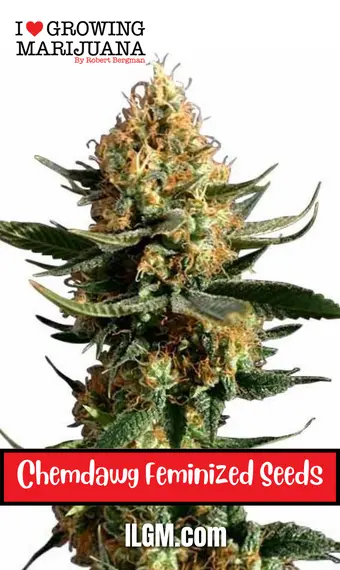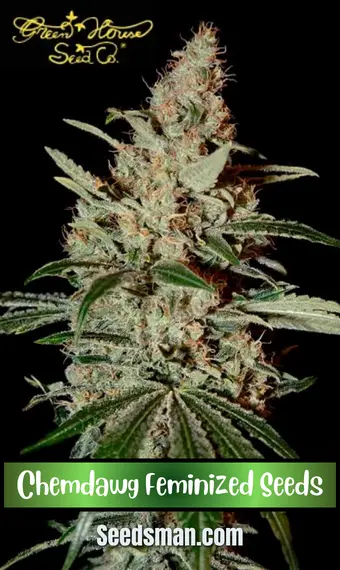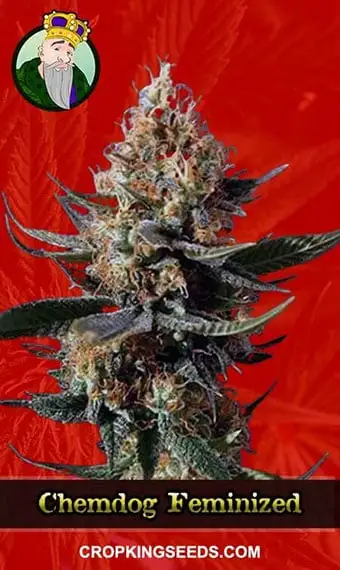Chemdawg Strain Review & Growing Guide
In the rich tapestry of cannabis strains, few captivate as much intrigue and admiration as Chemdawg. Veiled in mystery, its origins inspire countless tales within the cannabis community, adding to its allure.
One prevailing narrative suggests that Chemdawg emerged from a fortuitous cross between a Nepalese and Thai sativa, yielding a hybrid with unique potency and character.
Despite its ambiguous lineage, Chemdawg has significantly impacted the cannabis scene. It serves as the genetic foundation for numerous cherished hybrids, including the iconic Sour Diesel and OG Kush, both esteemed in their own right.
What distinguishes Chemdawg is its unmistakable potency, evident from its robust aroma alone. This trait has endeared it to cannabis enthusiasts seeking a robust and flavorful experience.
In the realm of cannabis, Chemdawg serves as a symbol of the allure of the unknown, captivating enthusiasts with its enigmatic origins and unparalleled potency.
Chemdawg Strain Effects
Chemdawg stands out as a favorite strain among experienced cannabis users, thanks to its potent and diverse effects that promise a memorable and enjoyable experience. However, newcomers should exercise caution when approaching this strain, given its high THC levels and pronounced psychoactive properties.
A distinctive feature of this strain is its ability to produce a robust and full-bodied effect, combined with a strong cerebral effect. This euphoric journey is often celebrated for its intensity, enveloping users in a wave of happiness and relaxation.
In addition to its tranquilizing effects, Chemdawg is revered for its mood-enhancing qualities. It possesses a remarkable ability to calm the mind and cultivate a cheerful and cheerful demeanor, making it a sought-after option for people seeking respite from stress or anxiety.
Additionally, this strain has earned a reputation as a catalyst for creativity and artistic inspiration. Many creatives and professionals in the artistic fields turn to this strain to stimulate their imagination and fuel their creative pursuits, finding it a powerful ally for brainstorming or creative projects.
Despite its potency, Chemdawg’s effect is often described as harmoniously balanced rather than overwhelming. Users often report a manageable and exhilarating experience, where even a few puffs can trigger bouts of contagious laughter and uncontrollable giggling.
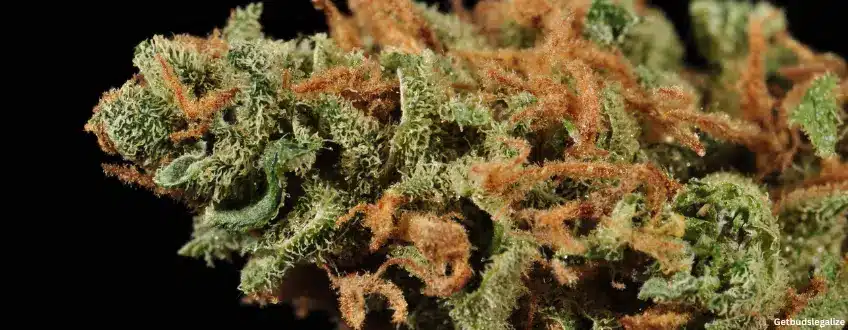
Chemdawg Terpenes
Chemdawg is a renowned cannabis strain celebrated for its intricate aroma, which is a blend of diverse terpenes.
Dominant terpene:
| Terpene | Characteristics |
| Caryophyllene | Spicy, cinnamon, clover |
Caryophyllene is the predominant terpene in Chemdawg, characterized by its spicy nuances reminiscent of cinnamon and clover. Beyond its aromatic qualities, Caryophyllene offers potential therapeutic benefits. Remarkably, Caryophyllene can interact with the endocannabinoid system, specifically targeting the CB2 receptors, which might account for its anti-inflammatory and analgesic properties.
Secondary terpenes:
| Terpene | Characteristics |
| Myrcene | Earthy, musky, fruity, clover, hop, pungent |
| D-Limonene | Citrus, lemon, orange, tangerine |
| Valencene | Sweet, fresh, orange, grapefruit, wood |
| α-Bisabolol | Fresh, herbal, spicy, chamomile, balsamic, sweet, floral |
| Humulene | Hops, earthy, wood, herbal |
The complexity of Chemdawg’s aroma is further enriched by a symphony of secondary terpenes, each bringing its own characteristic scent and potential benefits.
- Myrcene: This terpene imparts an earthy, musky scent with fruity clover undertones and a hint of pungent hops. As the most prevalent terpene in cannabis, Myrcene is believed to amplify the psychoactive effects of THC, potentially intensifying the overall experience.
- D-Limonene: As the name suggests, D-Limonene exudes a citrusy fragrance reminiscent of lemon, tangerine, and orange. Beyond its refreshing scent, D-Limonene is associated with mood elevation and stress relief.
- Valencene: This terpene contributes a sweet, fresh aroma with notes of orange and grapefruit, complemented by a subtle woodiness. Valencene is not only pleasing to the senses but may also offer anti-inflammatory and insect-repellent properties.
- α-Bisabolol: Known for its fresh, herbal, and spicy aroma, α-Bisabolol is akin to chamomile with balsamic and sweet floral undertones. It is often used in cosmetics for its soothing and anti-irritant properties.
- Humulene: With its hops, earthy, wood, and herbal notes, humulene adds depth to the Chemdawg profile. It is also recognized for its anti-inflammatory and appetite-suppressant effects.
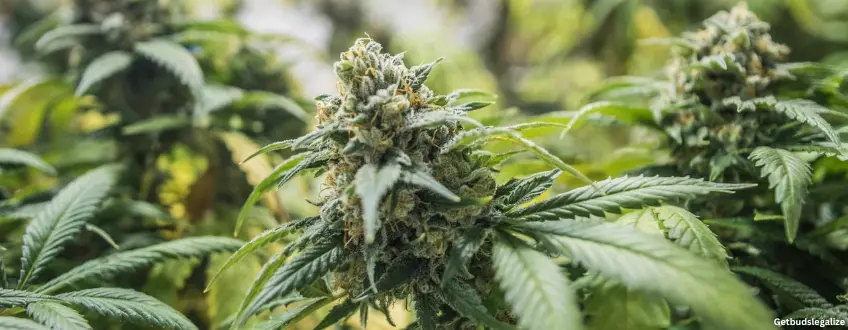
Best Chemdawg Seeds for Sale
Aroma & Flavor
One of the most surprising features of this strain is its powerful and unmistakable aroma. This strain is renowned for its pungent diesel haze that fills the room with an intense, lingering scent. This aromatic profile is complemented by an earthy pine blend that adds depth and complexity to its flavor profile.
Chemdawg’s lingering aroma is often described as long-lasting, ensuring that its presence is felt even after the strain has been consumed or removed from the room.
In terms of flavor, Chemdawg offers an experience consistent with its aroma. The strong diesel flavor is prominent, sometimes evoking associations with chemicals due to its pronounced and somewhat harsh profile. However, this powerful flavor is balanced by notes of pine and lemon, which help create a refreshing, citrusy aftertaste.
Adverse Reactions
Like many potent weed strains, Chemdawg can produce a variety of adverse reactions, especially when consumed in large quantities or by individuals sensitive to its effects. Users must be aware of these potential side effects to make informed decisions about their consumption.
One of the most common adverse reactions associated with its use is dehydration, which can manifest as dry mouth or dry eyes. This sensation is often referred to as “cotton mouth” and “dry eyes” respectively and is a common side effect of many cannabis strains due to their ability to reduce saliva production and tear secretion.
In addition to dehydration, some users may experience mild paranoia or anxiety, especially if they are prone to such feelings or consume the strain in high doses. This can be especially unsettling for inexperienced users or those who are not accustomed to the potent effects of this strain.
Dizziness is another potential adverse reaction that may occur sporadically. This feeling of dizziness or unsteadiness can be disconcerting but is generally short-lived and resolves on its own as the effects of the exertion wear off.
Finally, in rare cases, some individuals may experience a mild headache. While this side effect is less common, it can occur due to the strain’s powerful effects on the central nervous system and can be exacerbated by dehydration or overconsumption.
Medical Benefits
Chemdawg has gained recognition not only for its recreational appeal but also for its potential therapeutic benefits. Many patients taking medical marijuana have reported finding relief from a variety of symptoms and conditions through the use of this potent strain.
One of the main medical applications of Chemdawg weed is in the treatment of mental health disorders. Patients suffering from conditions such as anxiety, depression, and chronic stress can find relief from their symptoms thanks to the calming and mood-boosting effects of this strain.
Chemdawg’s ability to induce a state of relaxation and euphoria can help alleviate feelings of anxiety and depression, providing patients with a sense of well-being and tranquility.
In addition to its mental health benefits, this strain is also prized for its analgesic properties. The strain has been used extensively for pain management, particularly in the treatment of back pain, muscle spasms, and nerve damage.
The deep physical relaxation induced can help relieve discomfort and make pain more tolerable, allowing patients to experience a better quality of life.
Additionally, Chemdawg has shown promise in treating insomnia. Its sedative effects can help promote sleep by stimulating the release of melatonin, the hormone responsible for regulating sleep-wake cycles. This makes this strain a potentially effective option for people who struggle with sleep disorders or difficulty falling asleep.
Additionally, cancer patients undergoing chemotherapy or radiation therapy may benefit from using Chemdawg. The strain may help relieve nausea and stimulate appetite, which are common side effects of cancer treatments. By reintroducing a healthy appetite, this strain of cannabis can help patients maintain proper nutrition and overall well-being during treatment.
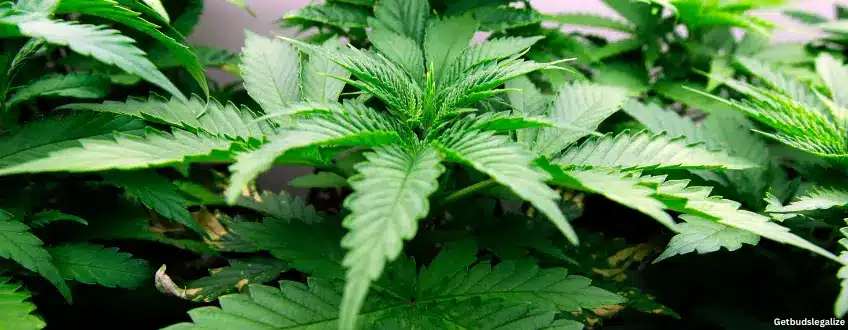
Chemdawg Grow Info
Growing Chemdawg plant can be a gratifying experience for cannabis growers. A fundamental guide to growing this strain is outlined below:
1. Cultivation Environment
Indoor cultivation is generally recommended for Chemdawg, as it allows for precise control over humidity and moisture levels. However. Chemdawg thrives best in mild, dry climates with temperatures between 68-80°F (20-27°C). Therefore, it’s essential to create a climate and environment that are conducive to the strain’s needs.
2. Soil and Nutrients
The soil used for Chemdawg cultivation should be well-draining, with a pH level between 6.0-7.0. Organic nutrients are preferred for this strain. Starting with a balanced fertilizer and adjusting it according to the plant’s growth stage is advisable. Additionally, top-dressing soils or using organic fertilizers can help prevent nutrient burn, ensuring the plant receives the necessary nutrients without any adverse effects.
3. Grow Techniques
Chemdawg plants respond well to training methods, allowing growers to maximize yields effectively. The screen of green (Scrogging) technique is particularly beneficial for this strain. Proper air circulation is essential throughout the growth cycle, as the strain’s dense buds are susceptible to mold.
4. Germination
For successful germination of Chemdawg seeds, the paper towel method or sowing seeds directly into prepared soil are the recommended methods. Maintaining warm and moist conditions during this phase is crucial to facilitate the germination process.
5. Vegetative Stage
During the vegetative stage, Chemdawg plants require 18-24 hours of light per day, provided by HID or LED grow lights. Proper ventilation, moderate watering, and maintaining the appropriate temperature are essential factors to consider during this growth phase.
6. Flowering Stage
To initiate the flowering stage, growers should switch to a 12/12 light cycle. As the buds develop, it’s important to adjust the temperature, humidity, and nutrient levels to support healthy growth and maximize yields.
7. Harvesting and Curing
Harvesting should be conducted when the trichomes appear milky white or amber, indicating optimal potency. After harvesting, trim the buds and dry them in a dark, well-ventilated area. Curing the dried buds in glass jars can further enhance their flavor and potency, providing a high-quality end product.
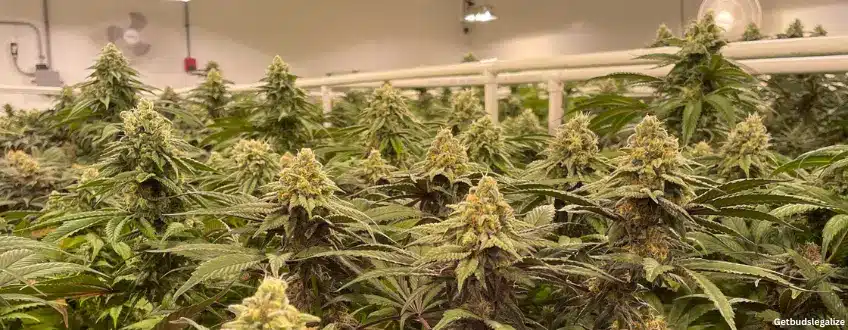
Chemdawg Flowering Time
Indoors
Chemdawg typically requires approximately 9 weeks to flower when grown indoors under optimal conditions. Growers should monitor the plant closely during this time and harvest once the buds have reached their peak ripeness and potency.
Outdoors
When cultivated outdoors, Chemdawg is usually ready for harvest around October. Outdoor growers should keep an eye on the plant’s development and maturation to determine the optimal time for harvesting. Factors such as local climate, weather conditions, and the specific phenotype of the plant can influence the exact harvest timing.
It’s important for growers to regularly inspect their plants and monitor trichome development to determine the best time to harvest. Harvesting too early or too late can impact the potency, flavor, and overall quality of the buds. By paying close attention to the plant’s flowering progression and using visual cues such as trichome color and bud development, growers can ensure a successful harvest and enjoy the unique attributes of this legendary strain.
Chemdawg Yield
When grown indoors, Chemdawg has the potential to yield an average of approximately 28 ounces (or about 800 grams) of high-quality bud per square meter. Indoor cultivation provides growers with more control over environmental factors, which can help optimize plant growth and maximize yields.
Outdoor cultivation of Chemdawg can be more challenging due to its sensitivity to environmental conditions and susceptibility to diseases. However, when the conditions are favorable and well-maintained, this strain can produce a substantial yield of around 35 ounces (or approximately 1000 grams) per plant.
Chemdawg Origin
The Chemdawg strain lineage is somewhat shrouded in mystery and controversy, adding to its allure and intrigue within the cannabis community. It is rumored to have originated from a cross between a Nepalese and Thai sativa strain, but the exact details of its heritage remain uncertain and are subject to speculation.
Despite the lack of a definitive origin story, what is clear is that Chemdawg has played a pivotal role in shaping the modern cannabis landscape. Its unique characteristics and potent effects have made it a favorite among growers and consumers alike, highlighting its significance and enduring popularity in the ever-evolving world of cannabis cultivation and consumption.
FAQs about Chemdawg Marijuana Strain
The Chemdawg weed strain typically yields generously, making it a popular choice among cannabis growers. Here are the general yield expectations for this strain:
- Indoor Yield: Around 28 ounces per square meter
- Outdoor Yield: 28 ounces or more per plant
Please note that these yield estimates can vary based on factors such as growing conditions, cultivation techniques, and environmental variables. With proper care and optimal conditions, growers can achieve impressive results with the Chemdawg, making it a rewarding option for cultivation.
The THC content in the Chemdawg weed typically ranges from 18% to 26%. This potency level makes Chemdawg a relatively strong strain, appealing to those seeking a potent cannabis experience.
The Chemdawg weed strain is known for producing a range of pleasant effects, making it popular among cannabis enthusiasts. The typical effects of the Chemdawg strain include:
- Happy
- Relaxed
- Euphoric
- Uplifted
- Creative
These effects can vary from person to person based on individual tolerance, consumption method, and dosage.
Growing Chemdawg can be a rewarding experience for cannabis cultivators. Below is a basic guide on how to grow the Chemdawg plant:
1. Indoor vs. Outdoor Cultivation:
- Indoor: Ideal for controlling humidity and moisture.
- Outdoor: Select extremely dry climates to combat mold susceptibility.
2. Climate and Environment:
- Temperature: Prefers 68-80°F (20-27°C) in mild, dry climates.
3. Soil and Nutrients:
- Use well-draining soil with pH 6.0-7.0.
- Opt for organic nutrients; start with a balanced fertilizer and adjust based on growth stage needs.
- Top-dress soils or utilize organic fertilizers to prevent nutrient burn.
4. Grow Techniques:
- Chemdawg responds well to training, with Scrogging (screen of green) being effective for maximizing yields.
- Ensure proper air circulation due to Chemdawg’s dense buds’ susceptibility to mold.
5. Germination:
- Use the paper towel method or sow seeds directly in prepared soil.
- Maintain warm, moist conditions for successful germination.
6. Vegetative Stage:
- Provide 18-24 hours of light per day using HID or LED grow lights.
- Maintain proper ventilation, and temperature, and water the plants moderately.
7. Flowering Stage:
- Initiate the flowering stage by switching to a 12/12 light cycle.
- Adjust temperature, humidity, and nutrient levels as buds develop.
8. Harvesting:
- Harvest when trichomes are milky white or amber.
- Trim buds and dry them in a dark, well-ventilated area.
- Cure dried buds in glass jars for enhanced flavor and potency.
9. Pest and Disease Control:
- Regularly inspect for pests and use organic pesticides or insecticidal soaps when needed.
- Ensure proper air circulation and avoid overwatering to prevent fungal diseases.
10. Tips for Success:
- Monitor plants closely and adjust conditions as needed.
- Prune and train plants for better light penetration and higher yields.
- Maintain a growth journal to track growth, nutrient schedules, and any issues.
By adhering to these guidelines and closely attending to your Chemdawg plants’ needs, you can cultivate this renowned cannabis strain successfully and enjoy its potent and flavorful buds.
The Chemdawg weed strain is classified as an Indica dominant hybrid, with a genetic makeup of approximately 55% Indica and 45% Sativa.
The taste of Chemdawg is characterized by its pungent, earthy notes similar to diesel, accompanied by refreshing, citrusy undertones of lemon and a distinct pine flavor. Additionally, there’s a subtle chemical undertone that contributes to its complexity.
The exact taste profile of Chemdawg can vary slightly depending on cultivation methods, curing processes, and specific plant characteristics, resulting in each strain having its own unique and appealing flavor.
Chemdawg has a low resistance to molds and mildew, making it susceptible to these issues. To cultivate Chemdawg successfully, growers need to ensure good ventilation, maintain humidity control, and promote adequate air circulation to minimize the risk of mold and pest infestations.
The medical benefits associated with Chemdawg include:
- Stress relief
- Pain management
- Alleviation of depression symptoms
- Improvement in insomnia
- Stimulating appetite
The side effects commonly associated with the Chemdawg include:
- Dry mouth
- Dry eyes
- Feelings of paranoia
- Dizziness
- Headaches
The two terms are often used interchangeably, denoting the same strain of cannabis. Both names hold significance within the cannabis community, representing a unique and influential strain that has been instrumental in shaping the modern cannabis landscape.
The variation in spelling is primarily a matter of personal preference and regional differences. Some growers and enthusiasts might favor one spelling over the other, but both terms generally indicate the same iconic strain with a somewhat enigmatic and debated lineage.
Regardless of the term used, the strain’s distinctive characteristics, potent effects, and crucial role in cannabis breeding and culture remain consistent, making it a favorite among numerous cannabis aficionados globally.
Chemdawg Strain Info:
Characteristics:
- Genetics: Nepalese Sativa x Thai Sativa (unsure heritage)
- Variety: Sativa 45% Indica 55%
- Sex: Feminized seeds
- THC: 18% to 26%
- CBD: 0.01% to 0.1%
- CBG: 1%
- Climate: Warm, dry Mediterranean summers
- Difficulty: Hard
- Yield: indoor 28 ounces/m2, outdoors 28 ounces/plant
- Flowering: Indoor 9 weeks, Outdoor October
- Taste & Smell: Diesel, earthy, pungent, lemon, chemical, pine
- Effect: Happy, relaxed, euphoric, uplifted, creative
- Medical uses: Stress, pain, depression, insomnia, lack of appetite
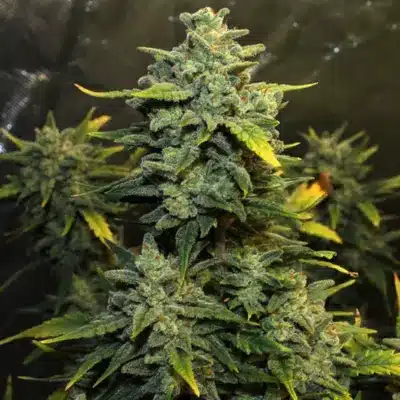
These Are Some Other Popular Strains That You Might Enjoy:
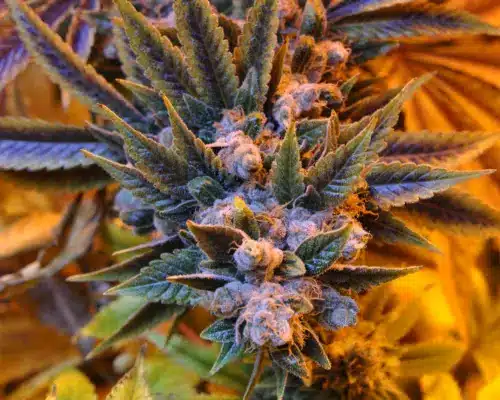
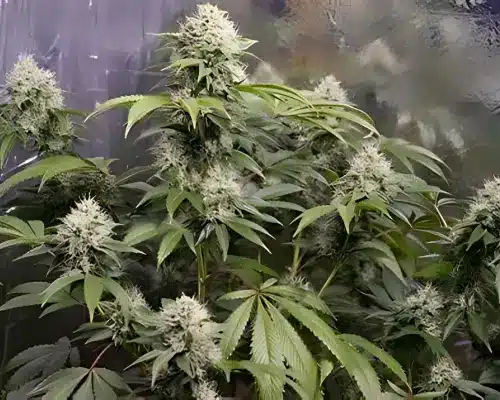
ILGM Fertilizer
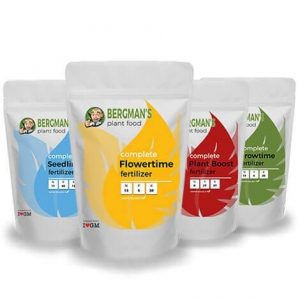
- From seedling to harvest, give your plants everything they need.
- Enough for feeding at least 5 plants.
- Discounted Package Deal
- Works well in soil, hydroponics, and other growing mediums.
- The best way to treat your plants
ILGM Plant Protector

- Protect your cannabis from diseases and harmful pests.
- Contains three 20 ml bottles.
- Enough supplies to protect 20 plants.
- It can be used in soil, hydroponic, and all other growing mediums.








